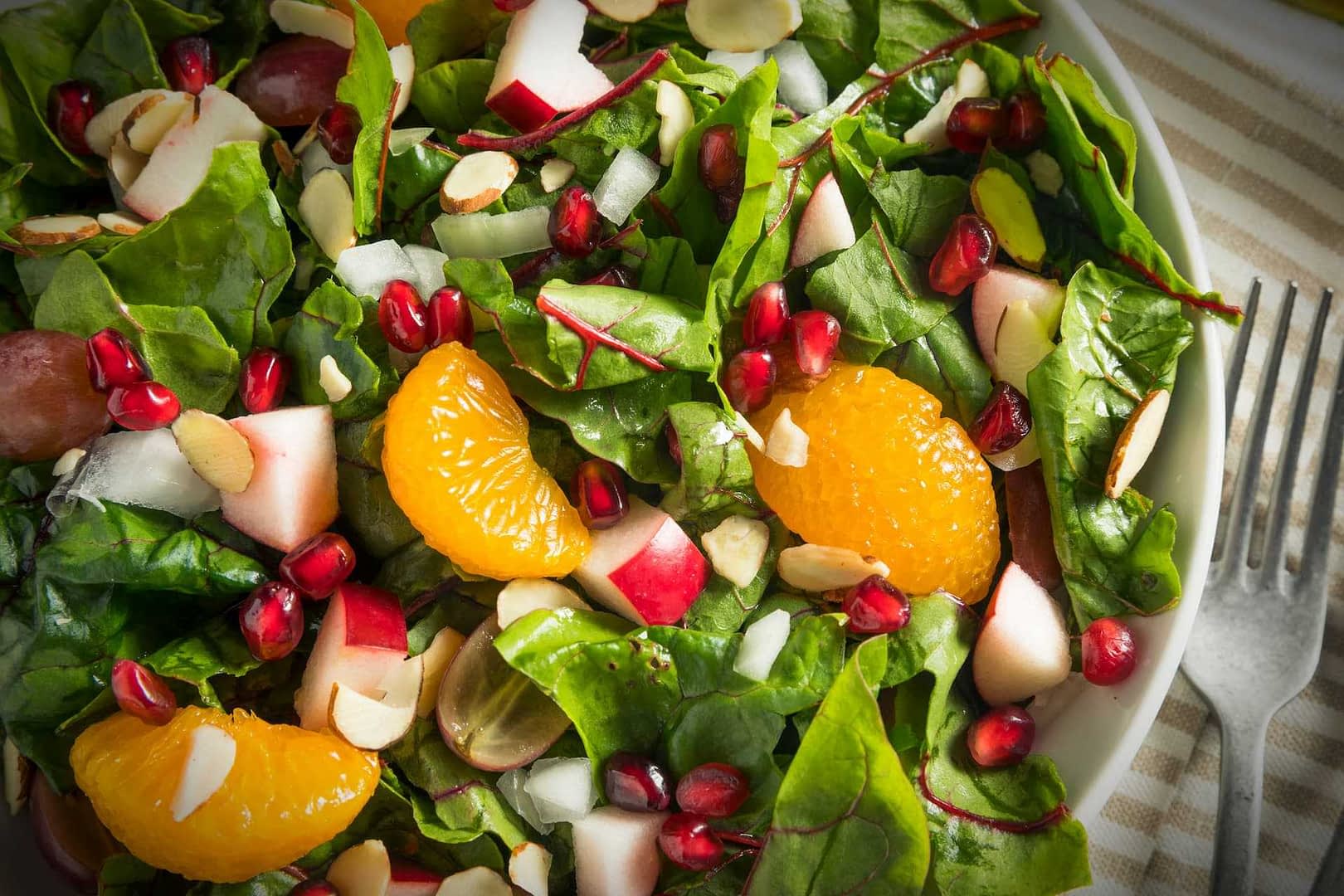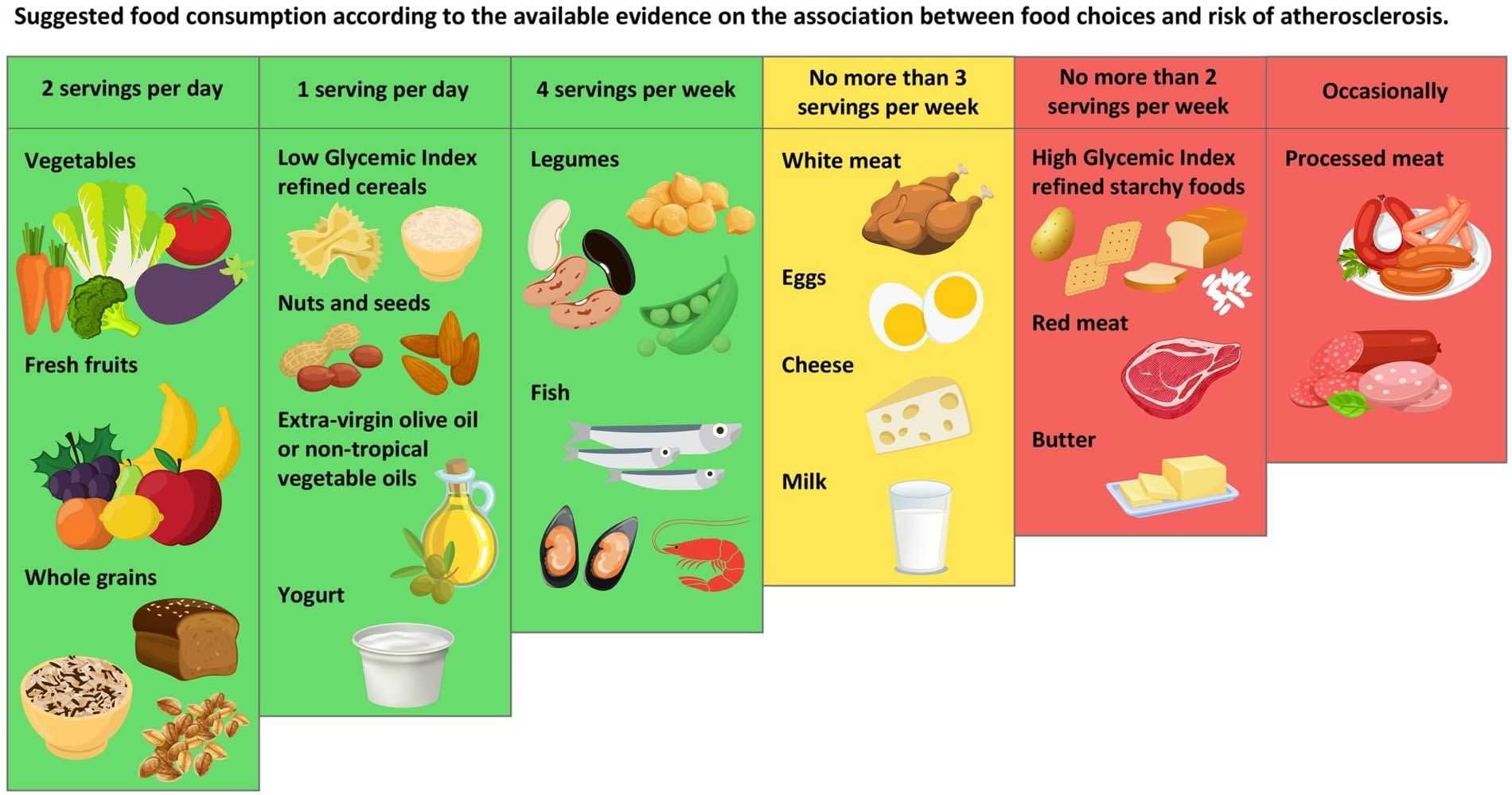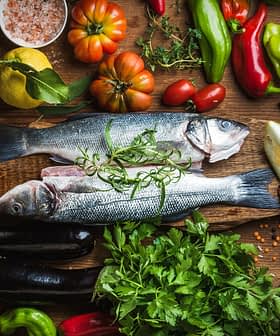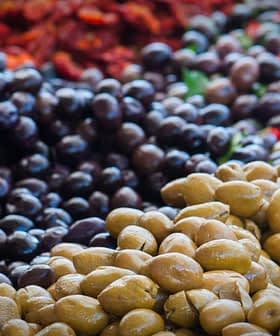Study Suggests New Approach to Promoting a Heart-Healthy Diet

A meta-analysis of scientific studies found that following the traditional Mediterranean diet is associated with a lower risk of cardiovascular disease and coronary heart disease. The study, conducted by researchers at the University of Naples Federico II, focused on specific food groups and their correlation with heart disease, ultimately recommending increased consumption of plant-based foods, nuts, fruits, vegetables, whole grains, and olive oil while reducing intake of processed and unprocessed red meat. The researchers hope their findings will help guide dietary choices to reduce cardiovascular disease risk and promote overall heart health.
A new meta-analysis of dozens of scientific studies has concluded that eating foods associated with the traditional Mediterranean diet were linked with a lower risk of cardiovascular disease and coronary heart disease.
The study, which was conducted by four researchers from the University of Naples Federico II and published in Cardiovascular Research, looked at the correlation between individual food groups and heart disease.
We know that diet is able to reduce cardiovascular disease events by as much as 50 percent. That’s a lot. The problem is, what can we do to make people change.
The researchers hope their meta-analysis provides a new context for the public to view what they eat and how they make their dietary choices.
See Also:Health News“Most dietary recommendations look specifically at nutrients and not at foods. The evidence on which they are based is evidence related to nutrients,” Gabriele Riccardi, the study’s lead author, told Olive Oil Times.
“Since people are eating foods and not nutrients, you have to translate this information into foods,” he added. “We wanted to look right at the foods and see what is the evidence in all the available literature worldwide on these large databases to look at the relationship between specific food consumption and cardiovascular disease.”
What Riccardi and the rest of his team found was hardly surprising. However, it gave them a more nuanced approach to recommending how people may change their eating habits to follow a more heart-healthy diet.
“The evidence is highly concordant in showing that, for the healthy adult population, low consumption of salt and foods of animal origin, and increased intake of plant-based foods – whole grains, fruits, vegetables, legumes and nuts – are linked with reduced atherosclerosis risk,” the researchers wrote in the study. “The same applies for the replacement of butter and other animal and tropical fats with olive oil and other unsaturated-fat-rich oil.”
Indeed, the researchers found that processed red meat and unprocessed red meat were highly correlated with increased incidence of and mortality from coronary heart disease and cardiovascular disease.

From top left to bottom right: Olga Vacarro, Gabriele Riccardi, Annalisa Giosuè and Ilaria Calabrese
Two out of three of the studies looked at by the researchers pointed to a daily serving of 50 grams of processed red meat being associated with a 27 percent to 44 percent increase in coronary heart disease incidence.
Three separate studies showed that daily consumption of 100 grams of unprocessed red meat was also associated with excess cardiovascular disease mortality.
The researchers also found, rather unsurprisingly, that the consumption of nuts, fruits, vegetables and whole-grain cereals were all highly correlated with lower risks of coronary heart disease and cardiovascular disease occurrence.
Five out of six studies that the researchers looked at showed an inverse relationship between fruit and vegetable consumption and coronary heart disease and cardiovascular disease. Green leafy vegetables showed the highest levels of reducing risk for the two diseases.
See Also:Study: Eating Some Lean Red Meat With MedDiet May Lower Risk of Heart DiseaseThe same was largely true of olive oil, which was highly correlated to a lower risk of cardiovascular disease.
The researchers found that in a dose-response evaluation, a five-gram increase of olive oil consumption was associated with a seven-percent decrease in coronary heart disease incidence, a four-percent decrease in cardiovascular disease incidence and an eight-percent decrease in cardiovascular disease mortality.
The consumption of vegetable oils high in linoleic acids, such as safflower, sunflower, corn and soybean oils, was also highly correlated with reduced cardiovascular disease incidence and mortality.
The results of their study led the researchers to draft a new food consumption guide. It looks very similar to the United States Food and Drug Administration’s food guide pyramid, but with a few major differences.

“If we want to reduce the risk of cardiovascular disease worldwide, it is much more appropriate, feasible and cost-effective if we ask people to concentrate on foods items to promote rather than food items to reduce,” Riccardi said.
“It’s much more effective in reducing cardiovascular disease to tell people to increase your consumption of fruit, vegetables, whole grains, legumes and utilize olive oil for salads,” he added.
For Riccardi, the decades-old conversation about avoiding certain foods and macronutrients, such as fat, has not worked. Neither has the more recent one about shunning some fats in favor of others, a concept too abstract to apply on a daily basis.
“It is nonsense to say to people that you have to prefer unsaturated fat to saturated fat because most people don’t know what saturated fat or unsaturated fats are,” he said.
“Instead, it is much easier and direct to tell the consumers, in relation to cooking fat, olive oils should be the preferred source of monounsaturated fats and should replace butter and other animal fats or tropical oils whenever possible,” Riccardi added.
He hopes that governments and the food industry pay attention to this study, but acknowledged that getting people to change how they eat has been widely unsuccessful, even in the face of the individual findings of the dozens of studies his team analyzed.
“We know that diet is able to reduce cardiovascular disease events by as much as 50 percent,” he said. “That’s a lot. The problem is, what can we do to make people change.”
Part of the issue is the piecemeal nature of scientific studies, many of which have a very narrow focus and are difficult for members of the public to put into a broader context. Part of Riccardi’s idea was to provide some of that context in this type of study.
“We know how people should change, but we don’t know how to convince people to make the right choices,” Riccardi said. “I hope that basing our study on solid evidence and giving emphasis to positive change rather than negative change can make a difference in relation to what has been done in the past.”
He added that his research team plans to do the same thing with type 2 diabetes, identifying the specific relationships of food and food groups with the chronic disease. The goal of this study will also be to help people identify which foods to eat more of and which foods to cut back on.
“The healthy diet is not a punishment for people,” Riccardi said. “Instead, it is a resource of gastronomic appeal and pleasure at the table.”
“We know that it is possible for people to eat well, to eat with pleasure and that’s one of the messages of the Mediterranean diet,” he concluded. “You can have a very nice diet, very appealing with foods that you love and at the same time to have this type of diet can have a beneficial impact on your health, particularly on cardiovascular disease risk.”









